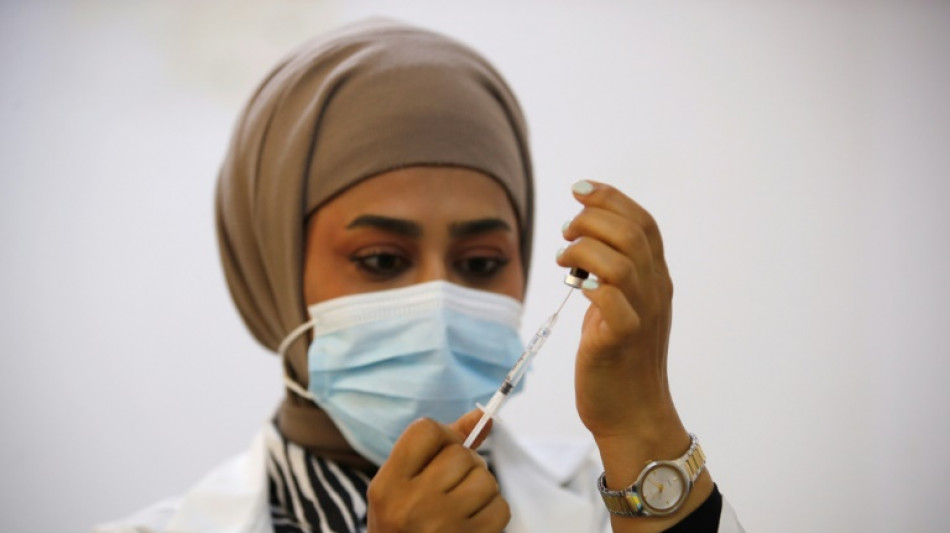
-
 Salah helps Egypt beat South Africa and book last-16 place
Salah helps Egypt beat South Africa and book last-16 place
-
Australia's Ikitau facing lengthy lay-off after shoulder injury

-
 Another 1,100 refugees cross into Mauritania from Mali: UN
Another 1,100 refugees cross into Mauritania from Mali: UN
-
Guardiola proud of Man City players' response to weighty issues

-
 Deadly blast hits mosque in Alawite area of Syria's Homs
Deadly blast hits mosque in Alawite area of Syria's Homs
-
The Jukebox Man on song as Redknapp records 'dream' King George win

-
 Liverpool boss Slot says Ekitike reaping rewards for greater physicality
Liverpool boss Slot says Ekitike reaping rewards for greater physicality
-
Judge jails ex-Malaysian PM Najib for 15 more years after new graft conviction

-
 Musona rescues Zimbabwe in AFCON draw with Angola
Musona rescues Zimbabwe in AFCON draw with Angola
-
Zelensky to meet Trump in Florida on Sunday

-
 'Personality' the key for Celtic boss Nancy when it comes to new signings
'Personality' the key for Celtic boss Nancy when it comes to new signings
-
Arteta eager to avoid repeat of Rice red card against Brighton

-
 Nigeria signals more strikes likely in 'joint' US operations
Nigeria signals more strikes likely in 'joint' US operations
-
Malaysia's former PM Najib convicted in 1MDB graft trial

-
 Elusive wild cat feared extinct rediscovered in Thailand
Elusive wild cat feared extinct rediscovered in Thailand
-
Japan govt approves record budget, including for defence

-
 Seoul to ease access to North Korean newspaper
Seoul to ease access to North Korean newspaper
-
History-maker Tongue wants more of the same from England attack

-
 Australia lead England by 46 after 20 wickets fall on crazy day at MCG
Australia lead England by 46 after 20 wickets fall on crazy day at MCG
-
Asia markets edge up as precious metals surge

-
 Twenty wickets fall on day one as Australia gain edge in 4th Ashes Test
Twenty wickets fall on day one as Australia gain edge in 4th Ashes Test
-
'No winner': Kosovo snap poll unlikely to end damaging deadlock

-
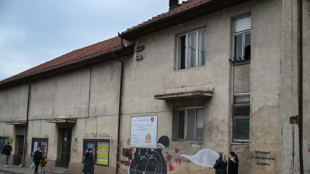 Culture being strangled by Kosovo's political crisis
Culture being strangled by Kosovo's political crisis
-
Main contenders in Kosovo's snap election
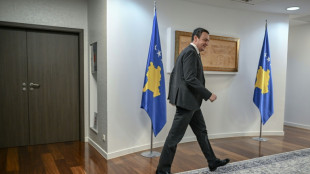
-
 Australia all out for 152 as England take charge of 4th Ashes Test
Australia all out for 152 as England take charge of 4th Ashes Test
-
Boys recount 'torment' at hands of armed rebels in DR Congo

-
 Inside Chernobyl, Ukraine scrambles to repair radiation shield
Inside Chernobyl, Ukraine scrambles to repair radiation shield
-
Bondi victims honoured as Sydney-Hobart race sets sail

-
 North Korea's Kim orders factories to make more missiles in 2026
North Korea's Kim orders factories to make more missiles in 2026
-
Palladino's Atalanta on the up as Serie A leaders Inter visit

-
 Hooked on the claw: how crane games conquered Japan's arcades
Hooked on the claw: how crane games conquered Japan's arcades
-
Shanghai's elderly waltz back to the past at lunchtime dance halls

-
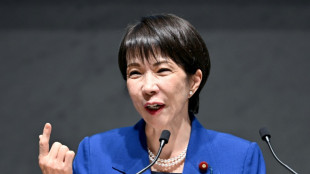 Japan govt approves record 122 trillion yen budget
Japan govt approves record 122 trillion yen budget
-
US launches Christmas Day strikes on IS targets in Nigeria

-
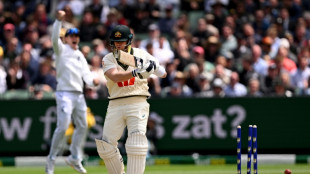 Australia reeling on 72-4 at lunch as England strike in 4th Ashes Test
Australia reeling on 72-4 at lunch as England strike in 4th Ashes Test
-
Too hot to handle? Searing heat looming over 2026 World Cup

-
 Packers clinch NFL playoff spot as Lions lose to Vikings
Packers clinch NFL playoff spot as Lions lose to Vikings
-
Guinea's presidential candidates hold final rallies before Sunday's vote

-
 Calvin B. Taylor Bankshares, Inc. Reports Third Quarter Financial Results and Announces New Stock Repurchase Program
Calvin B. Taylor Bankshares, Inc. Reports Third Quarter Financial Results and Announces New Stock Repurchase Program
-
Processa Pharmaceuticals and 60 Degrees Pharmaceuticals Interviews to Air on the RedChip Small Stocks, Big Money(TM) Show on Bloomberg TV

-
 Aptevo Therapeutics Announces 1-for-18 Reverse Stock Split
Aptevo Therapeutics Announces 1-for-18 Reverse Stock Split
-
Loar Holdings Inc. Announced The Completion of its Acquisition of LMB Fans & Motors

-
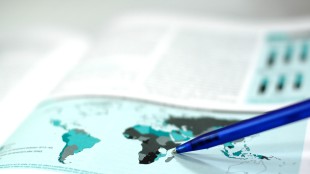 IRS Can Freeze Installment Agreements After Missed Filings - Clear Start Tax Explains Why Compliance Comes First
IRS Can Freeze Installment Agreements After Missed Filings - Clear Start Tax Explains Why Compliance Comes First
-
How the Terms of SMX's $111 Million Capital Facility Shape the Valuation Discussion

-
 A Christmas Message to the DEA's Diversion Anti Marijuana Cabal
A Christmas Message to the DEA's Diversion Anti Marijuana Cabal
-
QAT Community Sets QuantumTrade 5.0 for Public Beta Testing in March 2026
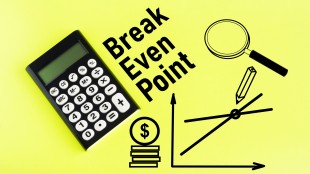
-
 BondwithPet Expands B2B Offering with Custom Pet Memorial Product
BondwithPet Expands B2B Offering with Custom Pet Memorial Product
-
Best Crypto IRA Companies (Rankings Released)

-
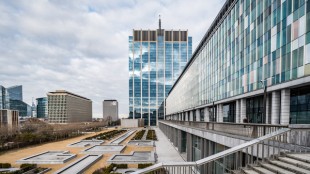 Eon Prime Intelligent Alliance Office Unveils New Brand Identity and Completes Website Upgrade
Eon Prime Intelligent Alliance Office Unveils New Brand Identity and Completes Website Upgrade
-
Villa face Chelsea test as Premier League title race heats up


Last chance for pandemic agreement talks
Countries return to the negotiating table on Monday for one last push on concluding a pandemic agreement, now in slimmed-down form with some of the thorniest aspects stripped out and shelved.
Two years of talks towards sealing a landmark accord on prevention, preparedness and response hit the deadline last month with nothing agreed in terms of concrete wording. The next deadline is the May 27 start of the World Health Organization's annual assembly of member states.
The 194 countries in the WHO are coming back to its Geneva headquarters for a do-or-die round of negotiations from Monday to May 10, to narrow their disagreements on how to best share resources needed to fight off the next pandemic.
"The next pandemic is not a matter of if, but when. If a new pandemic began tomorrow, we would face many of the same problems we faced with Covid-19," WHO chief Tedros Adhanom Ghebreyesus warned on Wednesday.
"The key issue now is whether we will learn the painful lessons the pandemic has taught us."
- Streamlined new draft -
In December 2021, the raw sting of Covid-19 -- which shredded economies, crippled health systems and killed millions -- motivated countries' desire for a binding framework of commitments aimed at stopping another such disaster.
Despite broad agreement on what they want those commitments to achieve, big gaps remain between countries on how to go about it.
What was meant to be the ninth and final round of talks last month saw a 29-page draft swell to more than 100 as countries inserted proposed amendments.
Taking the situation into account, the Intergovernmental Negotiating Body (INB) conducting the talks, issued a streamlined, 23-page version on April 16, with the word count down from 12,000 to 9,000.
The main disputes have revolved around access and equity: access to pathogens detected within countries, access to pandemic-fighting products such as vaccines produced from that knowledge, and equitable distribution of not only counter-pandemic tests, treatments and jabs but the means to produce them.
The new draft focuses on likely areas of common ground, setting up the basic framework, and parks some of the trickier detail in further talks planned over the next two years -- notably on how a planned WHO Pathogen Access and Benefit-Sharing System will work in practice.
- Draft provisions 'weakened' -
Non-governmental organisations attending the talks have been ploughing through the updated text, looking for what has survived and what has been jettisoned.
K. M. Gopakumar, senior researcher with the Third World Network, concluded that the new draft was "devoid of any concrete deliverables on equity and does not create any legal obligations to facilitate predictable and sustainable access to finance, pandemic-related products and technology".
For the medical charity Doctors Without Borders (MSF), the draft agreement's obligations on technology transfer to poorer countries "remain weak".
The Drugs for Neglected Diseases initiative (DNDi) welcomed the retained provision on ensuring equitable access to medicines and health tools created through publicly-funded research and development.
However, obligations "that would have ensured that people can benefit from scientific progress and have equitable access to the medical tools they will need have been weakened or deleted from the text and must be reinstated", said DNDi's policy advocacy director Michelle Childs.
Some feel the balance of the text has shifted from international obligations towards national-level commitments.
- 'Fierce timeline' -
The next two weeks of talks may have been given a renewed sense of urgency by recent WHO warnings about the exponential growth of H5N1 bird flu -- with concerns about what could happen if it starts transmitting between humans.
The INB will take stock of progress on Friday to determine the way forward, and wants to complete negotiations on the text itself by May 5.
May 7-10 will focus on wording the resolution to be passed at the World Health Assembly.
"It's a very fierce timeline," WHO spokeswoman Margaret Harris told reporters on Friday.
While some countries are keeping their cards close to their chest, the White House has reaffirmed the United States' commitment to a successful conclusion of the talks.
Tsegab Kebebew Daka, Ethiopia's ambassador in Geneva, told an event in the city that "we believe the differences in the text are not huge. They are mainly differences of ideas, and there are not that many."
Australia's ambassador Amanda Gorely added: "All delegations need to come together and focus on finding consensus."
S.F.Warren--AMWN



